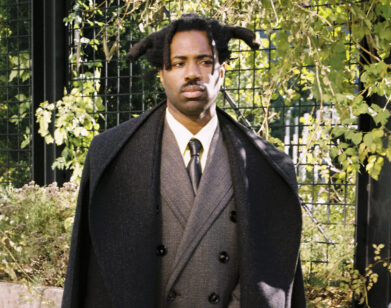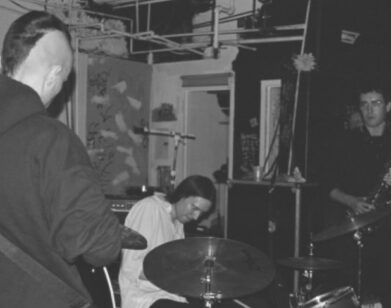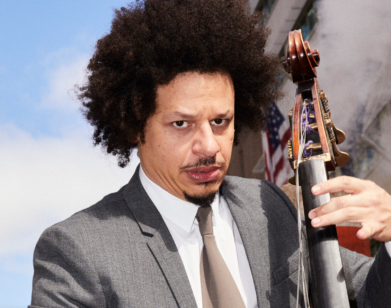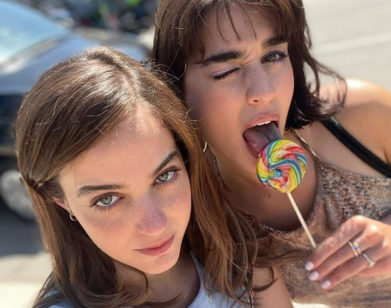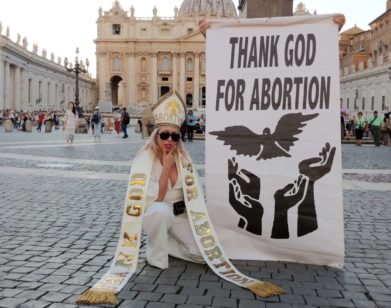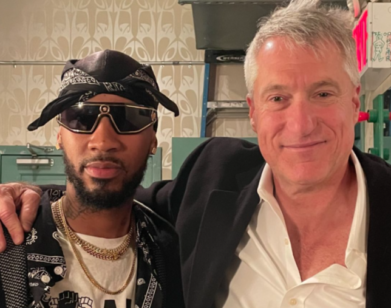Robert Glasper and YEBBA Say “Fuck Yo Feelings”
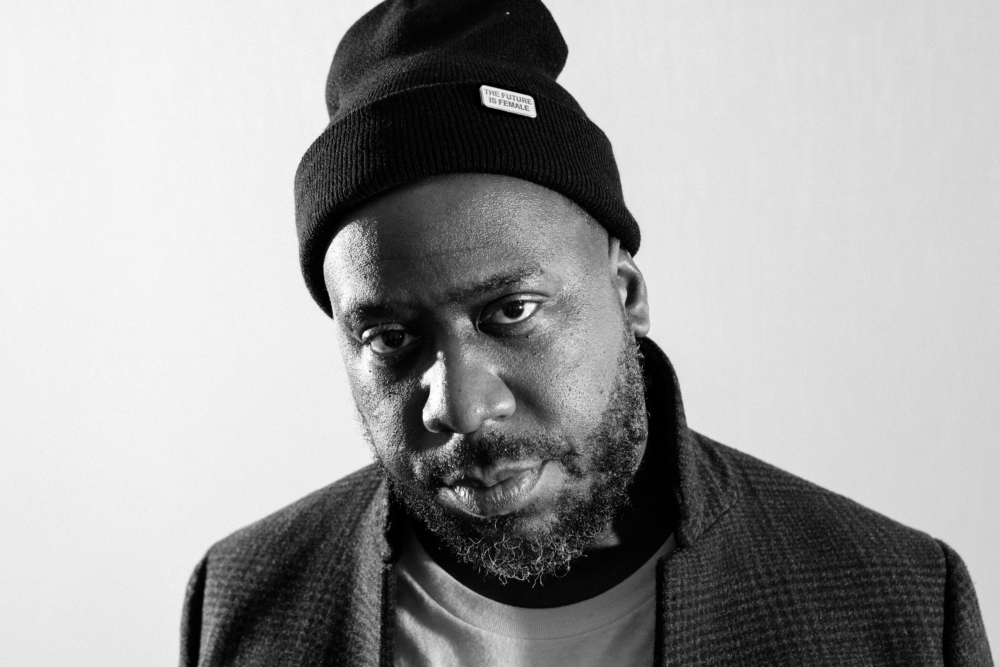
Photo by Todd Cooper.
Your feelings may be valid, but they are not the concern of Robert Glasper. Fuck Yo Feelings is the title of the Grammy-winning pianist and record producer’s latest mixtape, which features musicians as varied as YBN Cordae, Herbie Hancock, and Denzel Curry—and it also happens to be his newest tattoo. “I’ve always had that coming up, being a black musician playing jazz,” he says. “It’s black music, but it’s not run by black people. And then they try to tell you how to do it and it’s like, fuck yo feelings, I’m doing what the fuck I wanna do. And that’s how I’ve always given the middle finger.”
Wherever you look in the music industry—particularly at that sweet spot between jazz and hip-hop—Glasper is there, often with his piano. From the rule-shattering textures on Kendrick Lamar’s To Pimp A Butterfly to Brittany Howard’s Jaime, Glasper possesses the unique ability to cross-examine the talent out of some of his most talented friends. For his October residency at the West Village jazz club Blue Note, Glasper performed 56 shows in 28 days, bringing along Esperanza Spalding, Luke James, and others to join him in sets that married the intimacy of jazz with the dynamism of soul—not to mention the glitter of Stevie Wonder, sprinkled atop a series of shows that paid tribute to the R&B legend. Upstairs at Blue Note before heading onstage, Glasper sat down with his friend and collaborator YEBBA, who is featured on the titular track of Fuck Yo Feelings, and discussed the magic of Stevie, the pride of an Aries, and the therapeutic salve that is live performance.
———
YEBBA: I’ve been a fan of Robert for probably six or eight years. I saw him a lot in college when he would come to Nashville and I caught every single show. I was just obsessed listening to his music and just constantly being fed by how selfless it is, widening my perspective of the world and music and what it means to be within myself. So when he hit me up, I cried a little bit, took a shot, then I went to the studio where they were working.
ROBERT GLASPER: YEBBA just has a very honest voice, you know? It’s tricky being white and singing in the black music world because a lot of people have the whole thing of, “Oh here we go, another white girl trying to seem black,” blah, blah, blah. That’s my whole thing with my favorite musicians, favorite artists—just how honest they are with themselves. How honest they are within the music. That’s what attracted me to her. And then, when I started this mixtape… You’d just happened to be in LA and we talked.
YEBBA: Yeah.
GLASPER: I had the core band, and we were just literally jamming. So what we did was we got about 15 pairs of headphones and put them in the room where we were recording and put couches out there and put mad liquor out, so you can literally just be in the experience of us recording. To have that experience and listen to what we’re doing at the same time in the room with us. Because that’s not normal. Normally you’re separated and you’re watching through the glass so you’re not getting the actual same vibrations. And I just invited a bunch of people to hang out. And this artist Sir, I had him come because he’s a super fast writer, and he’s so emotionally thorough, too.
YEBBA: It’s really fast. He doesn’t miss anything.
GLASPER: And it was a room full of amazing artists, but there was no ego in the room. Those are my favorite rooms to be in. I hate when I’m in the room with a bunch of dope artists or musicians, but the ego’s in the room too. But this was free, open, and cool, and it flowed naturally. Nothing was forced. Everything just worked its way out. I’ve never made a record where everything I wanted happened and I’ve gotten used to that. I never know everything I want to do because I just wait for the moments. I like to create in the studio. Most of the music you’ll hear from me, a lot of it is created in the moment.
SARAH NECHAMKIN: Where did “Fuck Yo Feelings” come from?
GLASPER: Well, I’ve always had the “fuck yo feelings” mentality. Everybody has something to say about what you’re doing, how you’re doing it. You’re not supposed to do this. You’re not supposed to do that. Blah, blah, blah. I’m living my journey, so you can’t tell me how to live my journey. It’s just accepting someone else’s plight and struggles that are not your own. Understand that they have struggles that may not be yours. I’ve always had that coming up, being a black musician playing jazz. It’s black music, but it’s not run by black people and we don’t get the same opportunities as most other people, being black. And then they try to tell you how to do it, and it’s like, fuck yo feelings, I’m doing what the fuck I wanna do. And that’s how I’ve always given the middle finger.
YEBBA: I thinks that’s what all of your fans and what I admire about you. It’s not just confidence, but it’s also freedom and surrender and peace because it has so much empathy in it, because every single one of those songs isn’t just about Robert or his firsthand experience. It’s about human beings around us that are often not considered as much.
GLASPER: On all my records, I’ve tried to speak to the times we’re in. That’s how you mark history. I don’t talk on my records. I think I’ve talked on one, but I’m always letting someone else say something. Some of the poetry and stuff I have on the album is speaking on a lot of the issues that females go through—sexism, abortion, being a mother, just so many different things that women talk about that aren’t often appreciated. I wasn’t going to say anything. I said, I’m going to give you the platform to speak your mind.
YEBBA: That’s the dopest. The clarity and the balls to contribute to that is just indescribable to me.
NECHAMKIN: It’s funny because you were just on the Mark Ronson album, which also deals a lot with feelings and features all women. Was that a coincidence?
YEBBA: Oh, 100 percent a coincidence. The fact that Robert even really fucks with me is so surprising to me and truly an honor. It’s such an honor that you let me be a part of this record. It really has marked me forever.
GLASPER: I’m marked forever. It’s there. [Points to “Fuck yo feelings” tattoo on his arm.] It’s still healing. I got it literally a month ago.
YEBBA: I’m going to get FYF right here.
GLASPER: Awesome. I literally woke up one morning, I woke up and I said, “I’m going to get a fuck yo feelings tattoo.” It was never planned. I called my manager. I was like, “Can we get somebody to video it?” All my tattoos are like that. Every one of them, I just walked in. This one…[Points to another tattoo.] I was in high school. That’s definitely a regret.
NECHAMKIN: That was in high school? Is that a gargoyle? What’s the story there?
GLASPER: This is the Aries Ram. I was born April 6th. I’m a super Aries. I used to have an eyebrow ring. I took it out for a video for a song called “Gettin’ Up,” and I never knew how to put it back in.
YEBBA: You took your eyebrow ring out one time.
GLASPER: One time. That was it.
YEBBA: That’s how you lost it!
GLASPER: The video literally starts off with my face. A close-up. And I’m at the piano, and they were like, “the eyebrow ring doesn’t really match.” They took that shit out and a day later I was like, “Oh shit.”
NECHAMKIN: Was there anything surprising that came about with specific artists you had worked with? Was it different making this versus working on other artists’ albums?
GLASPER: I got many artists who weren’t there at the session and added them later. So for “Endangered Black Woman,” I brought the track to Andra Day because she was in the middle of recording her album, and she stopped, listened to it, and then wrote and laid that down.
YEBBA: She wrote that?
GLASPER: Well, she wrote the second half. Her and a friend of mine, Mohammad, wrote that together, basically. She threw her joint on. So a lot of it was sending the tracks to different artists and then telling them pretty much what the vibe of it was, and then kind of letting them just go. A lot of people, when they produce stuff, they overproduce and they don’t let the artist be the artist. If you have a singer, I’m hiring you because you’re dope. I like what you do. So I want to make sure that you’re in this, plus what I’m bringing, and then that equals something special, not just everything I want. Because I always felt like it just comes out better that way. It’s more honest and it just flows better.
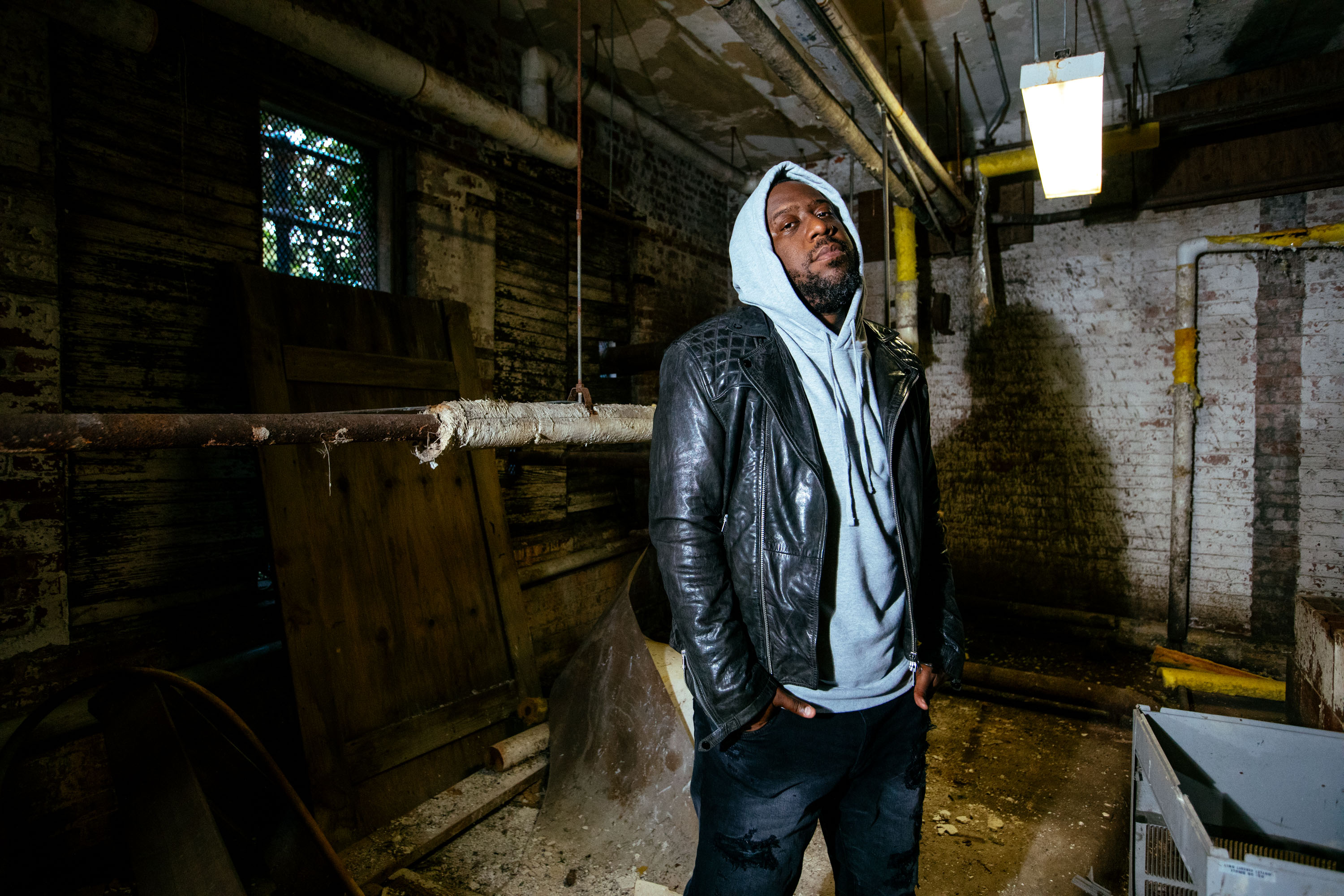
Photo by Todd Cooper.
NECHAMKIN: How has that experience been compared to playing live? Do you still find a different sort of magic playing every night?
GLASPER: Oh yeah. There’s nothing like playing live. When you play live, you get instant gratification. You can see people in there, in that zone. It’s therapy for me. When people ask me if I meditate or anything … I do when I play. When I’m on stage is when I’m caring the least about everything.
NECHAMKIN: Do you watch people as you’re up there? To see the audience reaction?
GLASPER: Having a record is one thing, but when you see something live, when you’re in the room with music, it’s different. It’s good for spirits. And I love being around those people all the time. When the people get to tell me how my music affected their lives, that’s what keeps me going. It’s not the musicians that keep me going. I don’t play for musicians’ praise. That’s great, but so many musicians play for musicians, you know what I mean? I can play a chord that has three notes in it, or I can play a chord that has 11 notes, but feeling it needs the three notes—it takes courage to know that. It takes courage to practice that, to choose to play what feels good versus what’s dope.
NECHAMKIN: I saw your Stevie Wonder show last night. Was that your idea to do a Stevie tribute? What was the origin?
GLASPER: I have a Stevie tribute band that had only done three shows ever. I did two in Harlem back in 2012, I did one in Philly, and I did one in London. So it’s just something I do when I can. He’s a very musical guy. So he grasped people because of that too, because he sings a lot of this stuff, and he’s one of those guys who really loves jazz and his music incorporates that. I’ve been collaborating with Mos [Def] since 2005, but I’ve known him for longer than that, because when I was working with Bilal [Sayeed Oliver], he was on Bilal’s first album. So whenever we would play, he would pop up and jump on stage. And so I’ve been knowing him for that long, since like 2002 really. And then he started using my band in 2005. I became his music director, and then we just been rocking ever since. And he’s like a horn player because with a lot of MCs that I know, a lot of dope MCs, you can’t throw things at them musically. They need to practice, they need to know what’s going to happen. He doesn’t want to know what’s going to happen. He loves to go wherever we go.
And I love working with people like that. We’re going to be in the moment and we’re going on the ride and if you’re not scared to do it, even if you are scared, you still do it. That’s the fun of it. He’s one of those dudes. And you know here people love him too, because he has the acting shit too. He did a movie called Something the Lord Made. It’s about the first heart surgeon, who was a black man. He plays that doctor.
NECHAMKIN: That’s crazy.
GLASPER: I remember we were on a tour together and I was watching it in my hotel room, and I was crying because it was that kind of movie. And I walked down and I wiped my eyes. He’s like, “Yo man, you’re good?” I was like, fuck man, you made me cry all the way.

